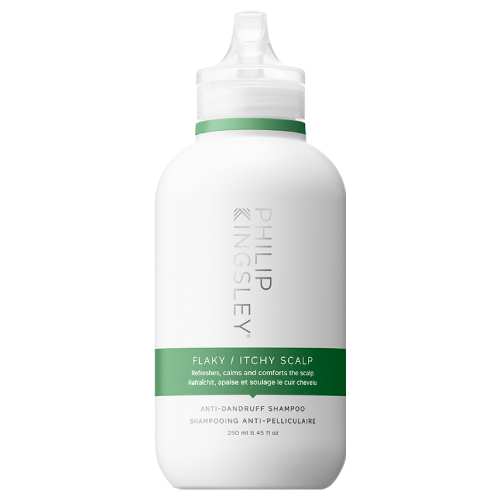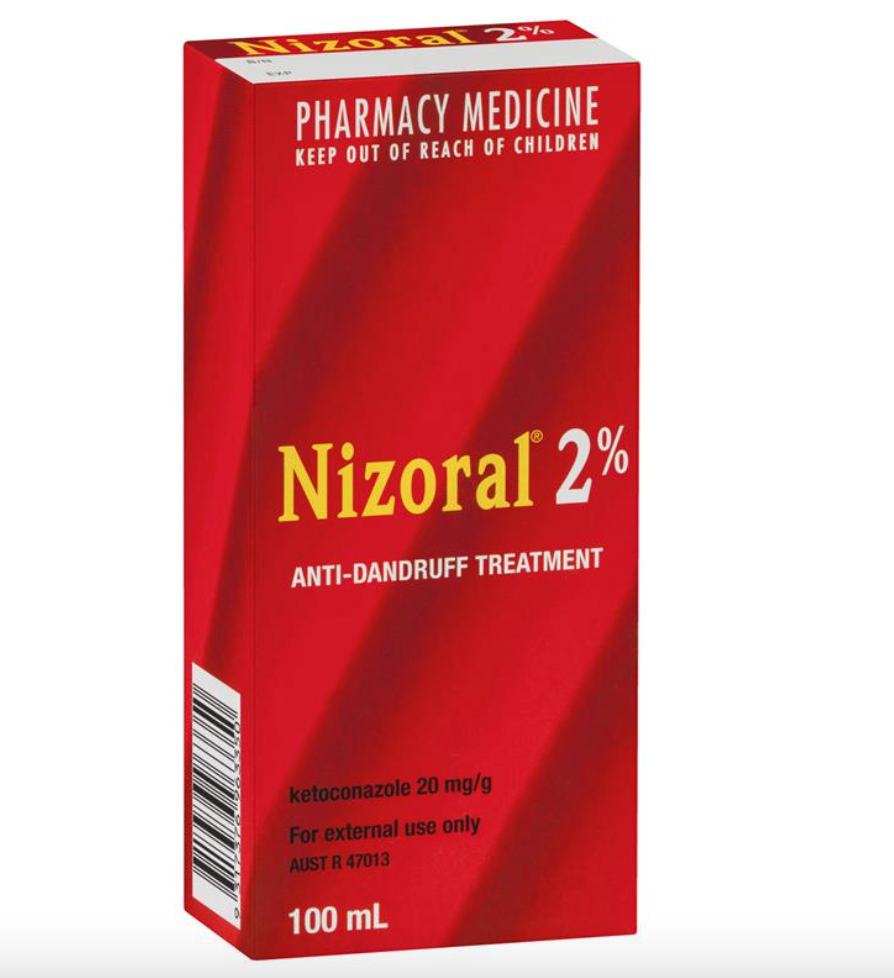Is Dandruff One Of Beauty’s Last Taboos?
Photographed by Erin Yamagata
At Refinery29 Australia, we’re here to help you navigate this overwhelming world of stuff. All of our picks are independently selected and curated by the editorial team, but we may earn commission or other compensation from the links on this page.
The broad assumption about dandruff is that it's still something we need to cover up, or feel embarrassed about. But the conversation around dandruff has started to change for the better. In the Australian media at least, gone is the narrative of the single man who can’t attract a partner because of his flaky scalp, or the woman refusing to wear dark clothes to a meeting for fear of dandruff falling on her shoulders. But even in recent years, haircare brands globally have used shame to convince consumers to buy their anti-dandruff products. For example, Sofia Vergara fronted a campaign in which a male character was scared to take his hat off because of his flakes, and one Indian Head and Shoulders ad sees a woman refusing to take a selfie with a man who has dandruff – though, of course, she's more than happy to once he's 'cured'.
AdvertisementADVERTISEMENT
Meant harmlessly or not, the after-effect of these scenarios is evident in many individuals – myself included. Only recently, I realised I was consciously avoiding using the term 'dandruff' to describe my cracking, sensitive scalp – almost as if it were a dirty word. By portraying it as something to be ashamed of, we are exacerbating what is in fact a treatable and very common condition. Trichologist Anabel Kingsley tells me that although 90% of her clients present with some form of scale on the scalp, many of them feel isolated by it. "People do get embarrassed," she told me, "and some men will come into my clinic wearing hats to hide it. Our perception towards it definitely needs to change. It's a skin condition – it doesn't mean that you're dirty, or that it's contagious, which is a common misconception."
Dandruff is classified as a mild form of eczema. "Dandruff is a condition called pityriasis capitis, which causes fine white flakes of dead skin on the scalp," says Dr Sharon Wong, a consultant dermatologist specialising in hair and scalp disorders. "It is considered a low-grade, non-inflamed form of eczema. When the condition becomes inflamed and itchy, it is called seborrhoeic dermatitis, a specific form of eczema." But what causes dandruff is up for debate.
"Dandruff has historically been thought to be due to an oversensitivity towards malassezia yeast, which is naturally present on the surface of our skin," adds Dr Wong. "It's believed that when these yeasts feed off our skin’s natural oils, the byproducts released cause a more rapid skin cell turnover in some people, hence dandruff. However, more recent studies suggest the picture may be a little more complicated and that dandruff could result from a disturbance in the delicate balance between surface bacteria and yeasts on the scalp."
AdvertisementADVERTISEMENT
Triggers can include everything from diet, stress and changing hormone levels, with many women reporting dandruff after coming off the pill. Whatever the cause, the belief that a dry scalp causes dandruff is incorrect, and avoiding shampooing for fear of drying it out more won't help. According to the experts, oily scalps are more prone, and shampooing regularly is the key. When it comes to choosing your products, look out for specific anti-yeast ingredients such as ketoconazole, zinc pyrithione, selenium sulphide or piroctone olamine, which you can find in a range of anti-dandruff shampoos. Tar-based products, or those containing salicylic acid can also help. Anabel, unsurprisingly, favours Philip Kingsley's Flaky/Itchy Scalp Shampoo, $55 – as do thousands of her happy customers – for its impressive flake-removing results (weapon of choice: piroctone olamine) and non-medical, fruity scent, leaving the hair soft and unstripped.
To really kill off dandruff, you need to commit to your shampoo routine, so it's best to find a product you like. "You have to shampoo daily with a targeting product until your symptoms clear," Anabel continues. "Think of any skin condition – acne, for example. You need to apply topical products daily to see results, and if you aren't shampooing, you aren't removing the dead skin cells." Once you're clear, keep using the product regularly for a few more weeks, then keep it in your bathroom cupboard in case of any flare-ups. It's worth noting that if the scalp becomes very inflamed or infected, then it's time to see your doctor.
As for the self-esteem issues surrounding such a common, curable condition, it's high time we kicked that stigma to the kerb. I for one will be unashamedly putting the word 'dandruff' back into my vocabulary.
AdvertisementADVERTISEMENT








